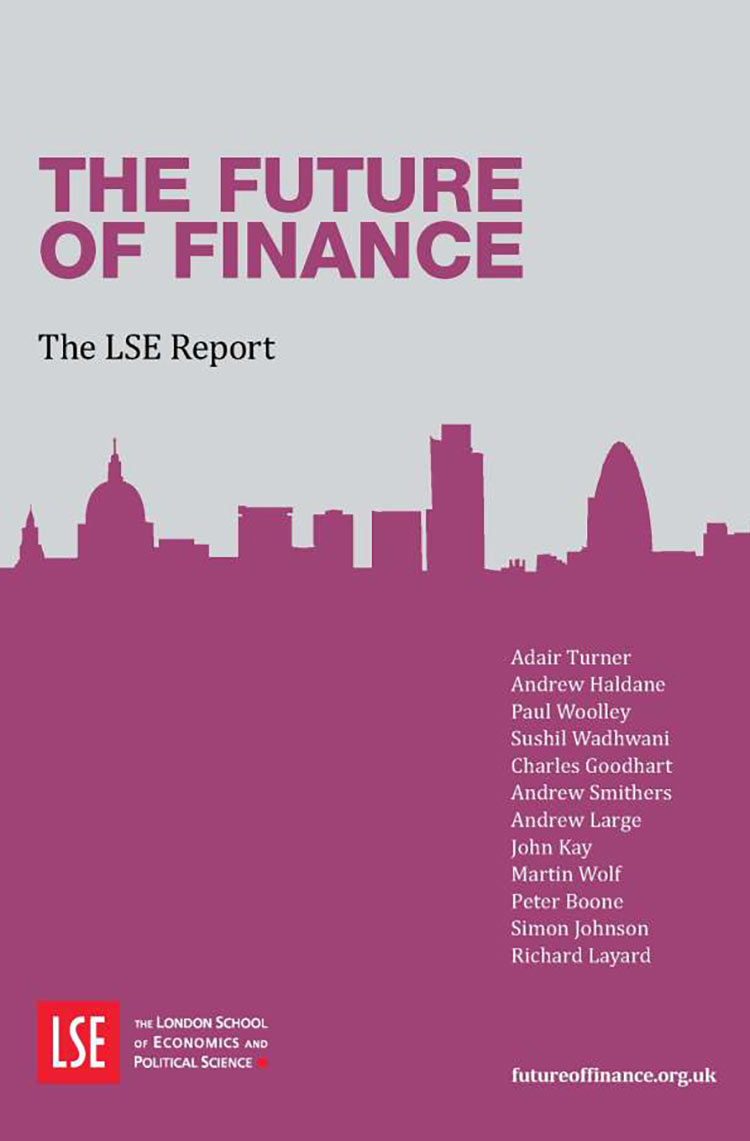The financial crash of 2008-9 has been the most damaging economic event since the Great Depression – affecting the lives of hundreds of millions of people. The most immediate problem now is to prevent a repeat performance.
Much has been written about reforming the world financial system. But it is rarely based on a searching in-depth analysis of the underlying weaknesses within the system. Nor does it usually tackle the key question of what a financial system is for. To correct this omission, we invited eighteen leading British thinkers on these issues to form a Future of Finance Group. They included journalists, academics, financiers and officials from the Financial Services Authority, the Bank of England and the Treasury. We have met twelve times, for what many of those present described as the best and most searching discussions they had ever participated in. The result is this book.
The issues at stake are extraordinarily difficult and profound. The central question is what the financial system is for? Standard texts list five main functions – channelling savings into real investment, transferring risk, maturity transformation (including smoothing of life-cycle consumption), effecting payments and making markets. But if we study how financial companies make their money, it is extraordinarily difficult to see how closely this corresponds to the stated functions, and it is often difficult to explain why the rewards are often so high. Any explanation must also explain why the system is so prone to boom and bust.
“The UK has been at the epicenter of both the financial crisis and the ongoing debate over the future of finance. Here the leading figures in that debate tell us how to think about the process of financial reform. Their thoughts deserve the widest possible audience, not just in Britain but in the United States and globally.”
Barry Eichengreen, University of California, Berkeley
“A preoccupation with public good is what distinguishes this book from others about the crisis. The authors take a broader perspective in exploring new approaches for understanding the functions of banks and financial markets. It is particularly refreshing to see the London School of Economics re-establishing its traditional leadership in social sciences research oriented towards social welfare advancement.”
Jean-Charles Rochet, University of Zurich. Toulouse School of Economics
“As we look forward to the reform of the financial system, there is a need for a more fundamental review of the nature of financial intermediation, its scope and size. This volume is in the best traditions of the LSE in weaving together the perspectives of academics and policymakers to address a topic of great importance. It is a must read for anyone who wishes to delve deeper into the policy issues.”
Hyun Song Shin, Princeton University





